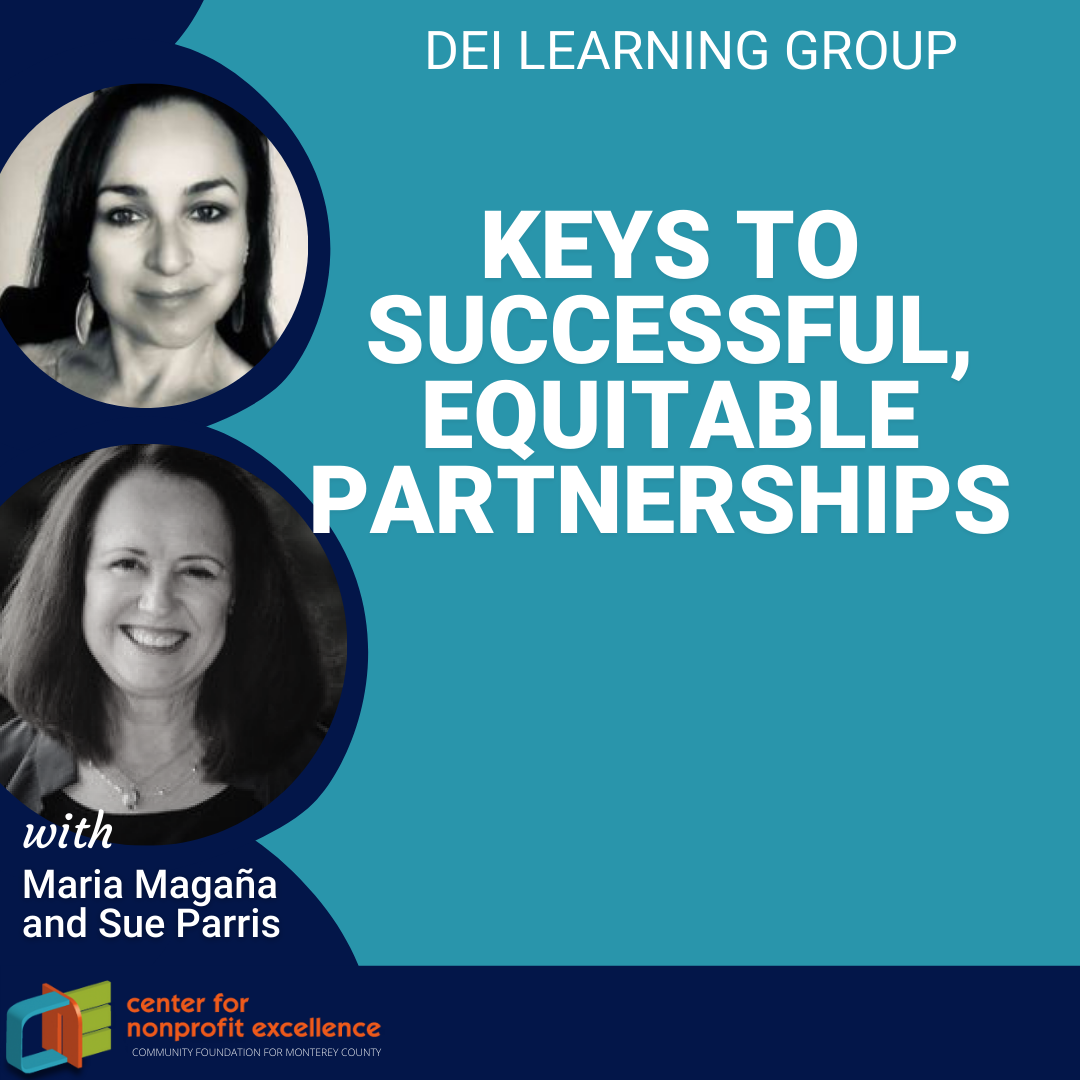
Keys to Successful, Equitable Partnerships
By Maria Magaña and Sue Parris, National Coalition Building Institute (NCBI)
In Fall 2021 we facilitated a nonprofit peer learning group for the Center for Nonprofit Excellence (CNE) on the topic of partnering with the community – a central tenet for racial equity, diversity and inclusion. Here are some things we discussed that we believe are key for successful, equitable and effective partnerships.
Successful Partnerships are Relationship-Centered, Not Transactional
- What is the common interest or issue that brings us together?
- Partnerships should be win-win. Identify: what’s in it for me and my organization? What’s in it for you and your organization?
- Acknowledge power dynamics; partner with your community without patronizing.
- Nothing about us without us. Follow direction from the Independent Living Movement and strive to do things with and not for.
- Transparency builds trust, as does being open to feedback.
Work Collaboratively to Set and Achieve Goals and Stay Accountable
- Check in with community members about needs, processes, goals.
- An advisory committee should have real representation and meaningful participation. Consider compensating community members for their time.
- Use roundtable conversations for insights.
- Focus on quality not quantity, assets in the community, not deficits.
- Community programs should be woven into community life and existing community activities.
Further Questions to Strengthen Partnerships
- What does partnership mean to you?
- Where does your organization partner with the community?
- What have been your challenges?
- What have you enjoyed/gained from partnering?
- How would you improve or do it differently in the future?
What groups might you consider outside of your current or typical partners? Consider intersectionality of marginalized groups: the ways in which systems of inequality and discrimination “intersect” to create unique dynamics and effects. For example, any woman may experience sexism, but a woman of color may experience sexism in a very different way than a white woman.
What is your plan to create an intentional relationship with a potential community partner – or – to improve a current community partnership? How will you be accountable?
